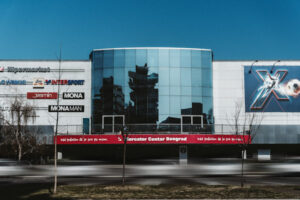By Shannon Quilty
Having built my shopping center career in developed and developing markets, I have experienced disruptions of all kinds in our industry. Though this serves as one of the more challenging times, I believe that this is an opportunity to return the role of “relationship builder” to shopping center managers. When I began my career, shopping center managers rarely spent time in their offices. We could be found at property locations, talking to tenants, getting to know their businesses and challenges. If we were not there, we were at community events, working with local governments or associations, establishing our properties as anchors for communities, with ourselves as the ambassadors.
Over time, the role of the shopping center manager evolved to managing by numbers. Budgeting, forecasting, and reporting kept us at our desks; we no longer served as active and visible parts of communities. We expanded our skillsets to fill a more financially sophisticated role. That particular evolution was uncomfortable but necessary and, once done, provided a new tool for us to understand the health and well-being of tenants, customers, and shopping centers.
We are currently facing another deep disruption as digitalization is not only changing the way managers do their jobs, but how they see entire properties as well. For many, understanding and learning the latest necessary skills is as uncomfortable as developing the required financial acumen was during the previous disruption. It is, however, essential.
A return to the role of ambassador, with a focus on relationship building, or “Relationship-centricity”, should be the approach going forward. We must strive to be positive forces in the lives of internal and external stakeholders – to help solve their problems, achieve their goals, and improve their quality of life (and business). This may sound like a big task, but embracing the digital environment responsible for the disruption might be the solution, and it may also afford us the time to lead our property teams and provide the financial analytics that are integral to understanding the health of our centers.
Understanding the role social media plays in the shopping center and retail business worlds is essential. At the very least, platforms have to be monitored, and feedback must be quickly and properly addressed. The real benefits arise, however, when one goes further and proactively engages customers in real time, i.e., proposing relevant offers and tips as customers move throughout the centers. All data that is available via Wi-Fi opt-in, facial recognition, Wi-Fi beacons, heat mapping, etc. should be collected. Such data (along with social media) provides understanding of customers beyond the typical segmentation. The rich data that these platforms provide allows us to learn more about off-line and on-line behavior, thus providing an opportunity to influence and guide.
Opportunities to expand center offers beyond real estate and into the virtual world should also be considered. Establishing external partnerships with complementary digital-native merchants provides opportunities to offer complete solutionswhile increasing income through revenue share. The typical branded app can do more than list shops, events, and sales. It can provide budgeting/planning tools to help customers prepare for life events as well as include calendars with milestones and calls to action. Centers can use that data to orchestrate mutual interest group events, such as Mom-to-Be, etc. Orchestrated life event planning that assists in the achievement of goals and dreams will do more to create loyal relationships that are far more long term and genuine than those that result from cash, points, or prizes.





